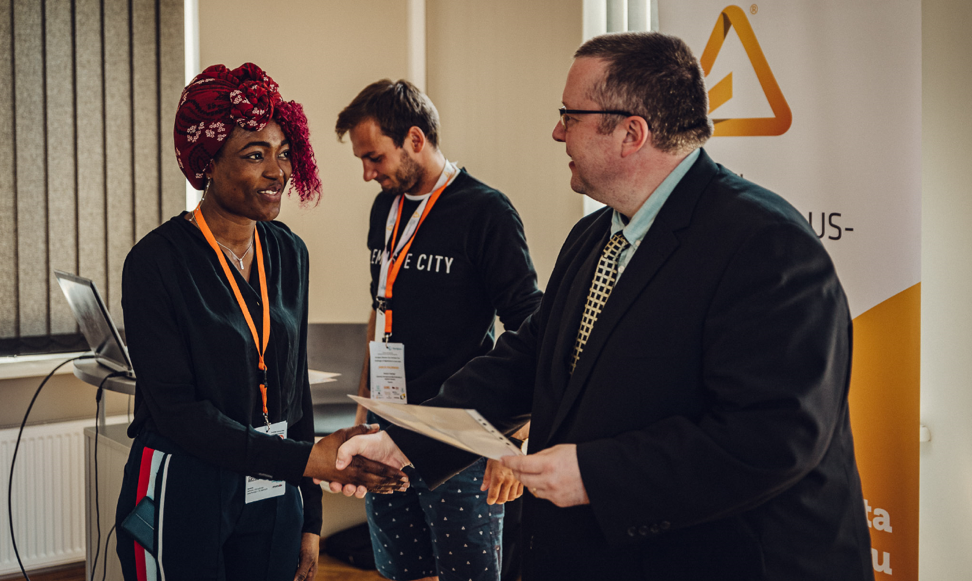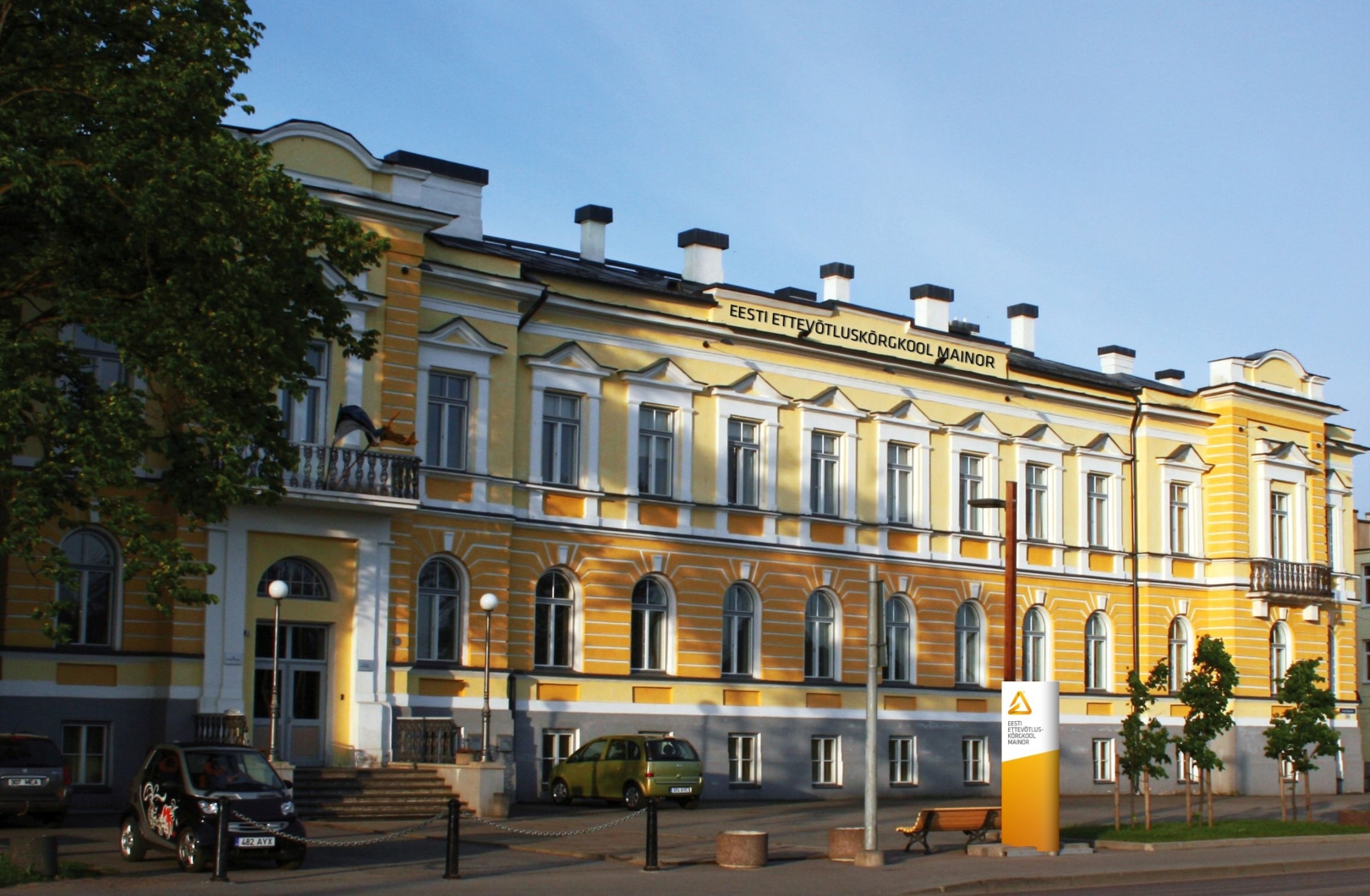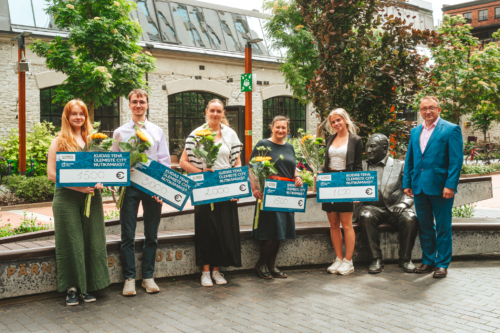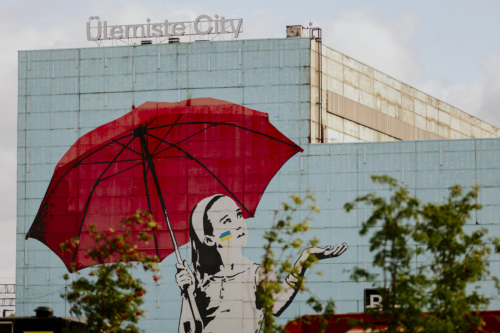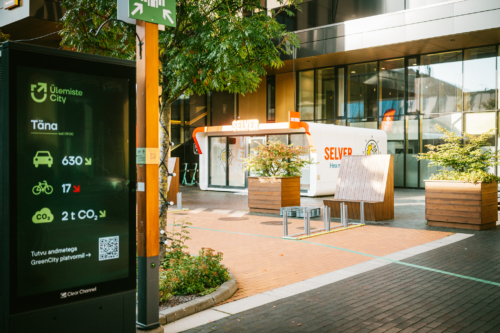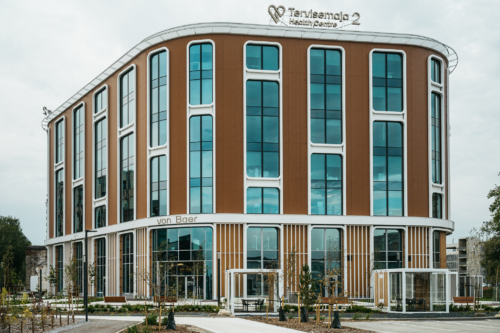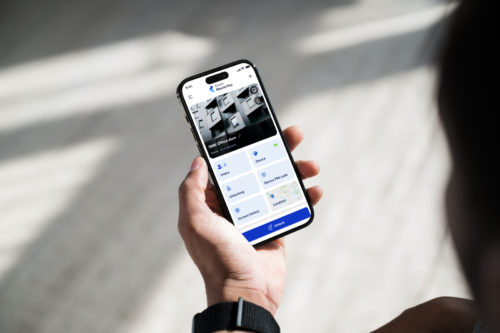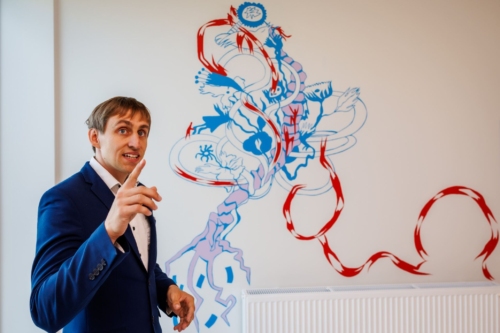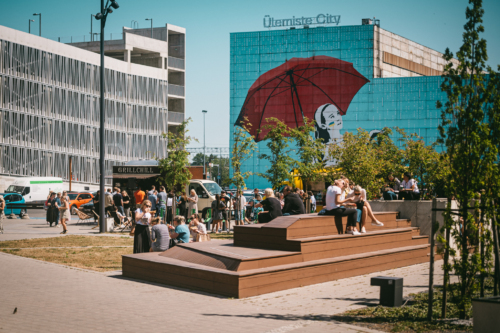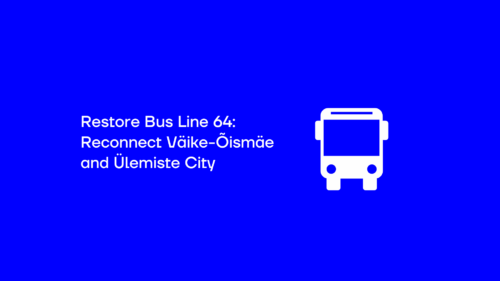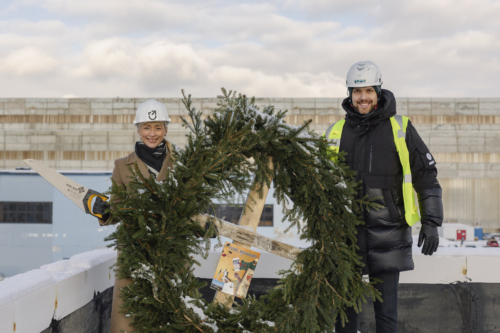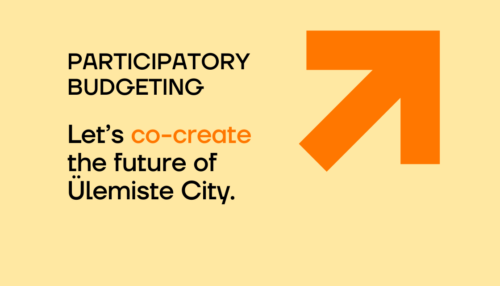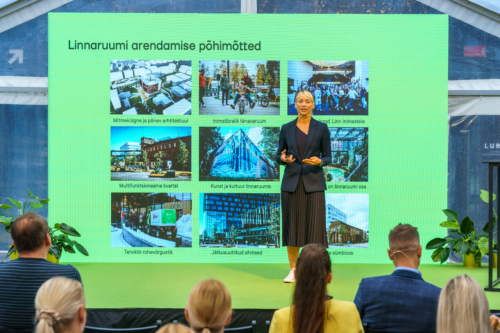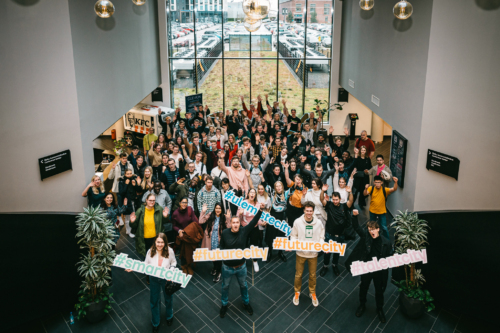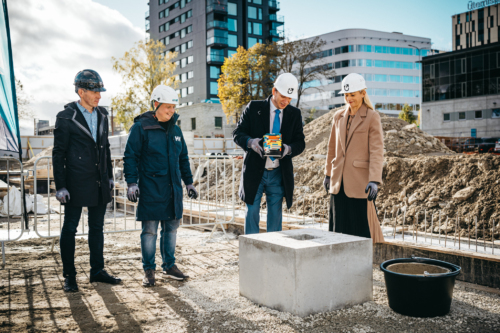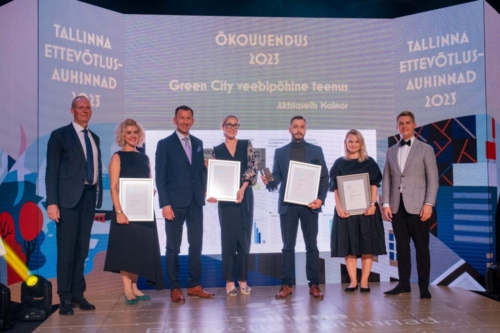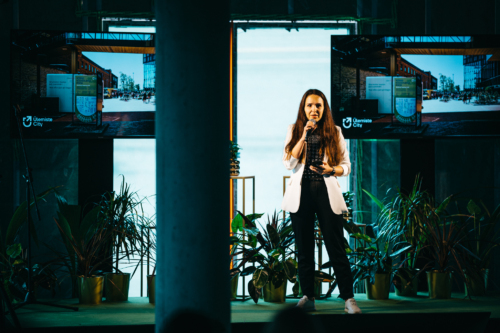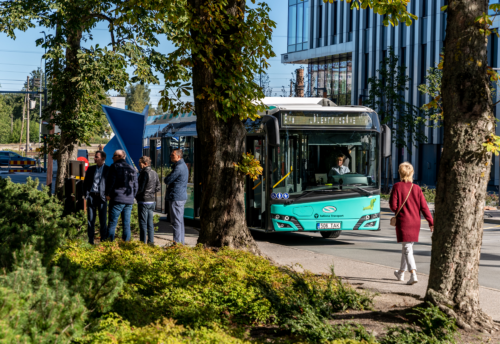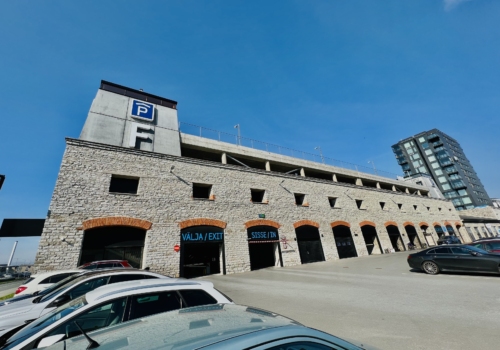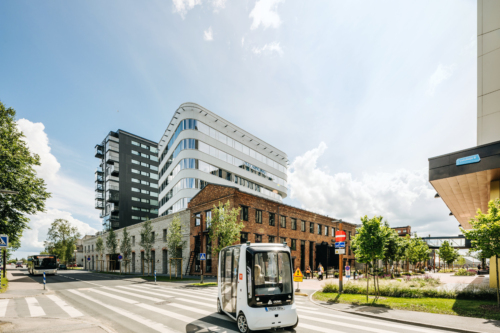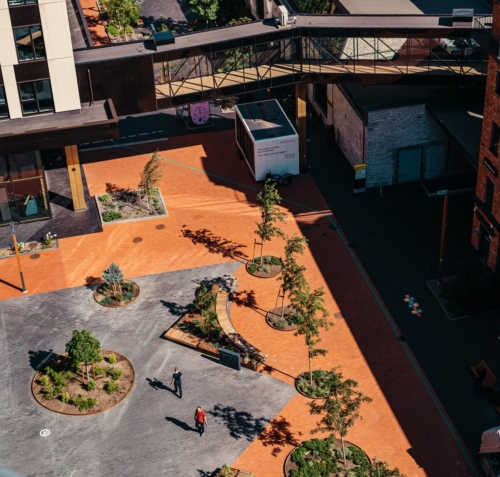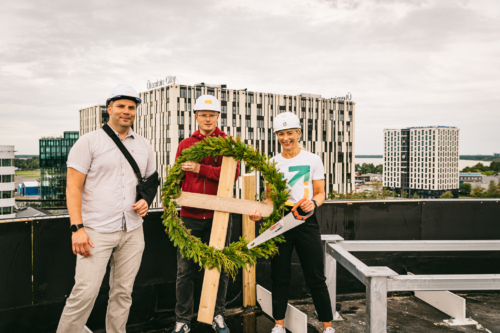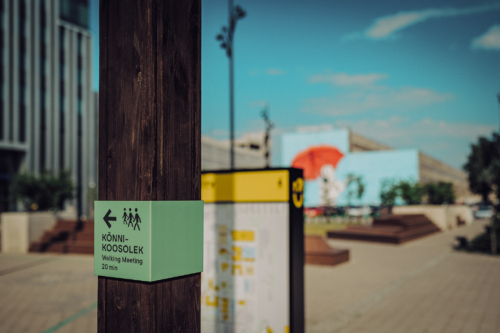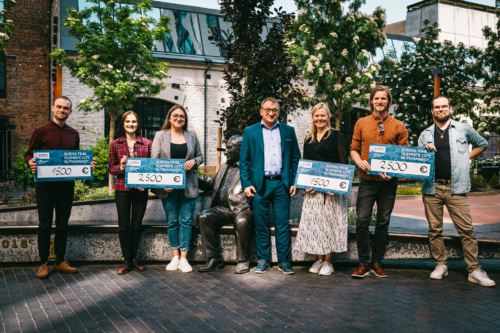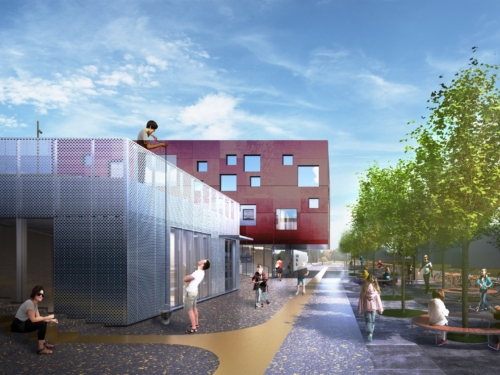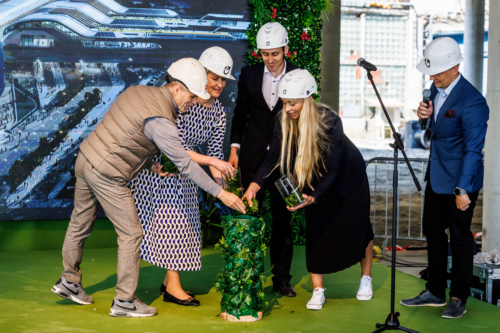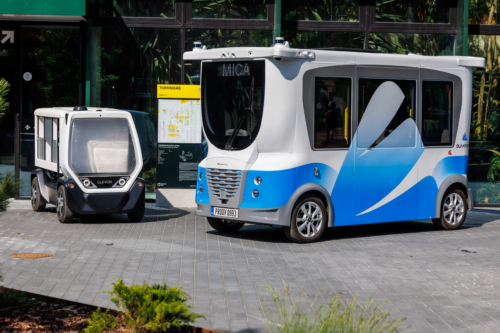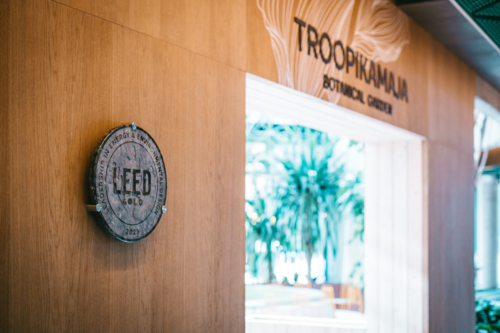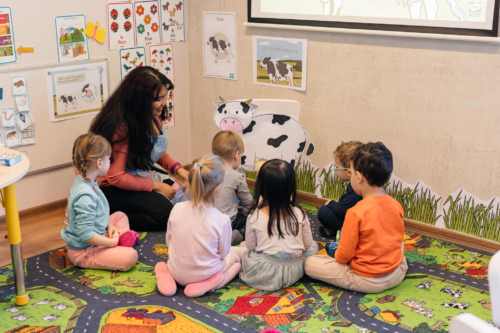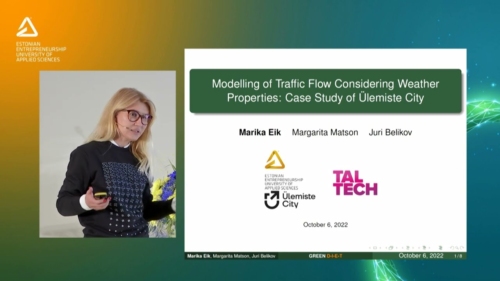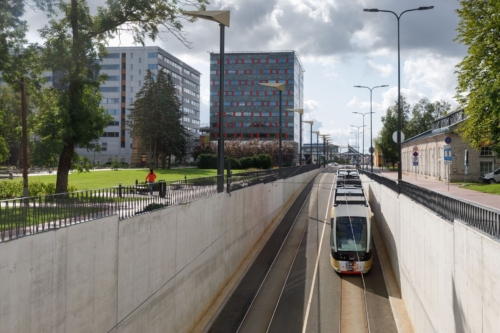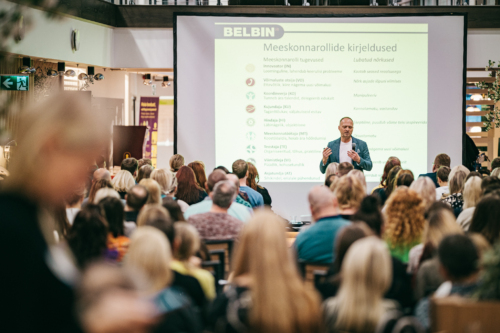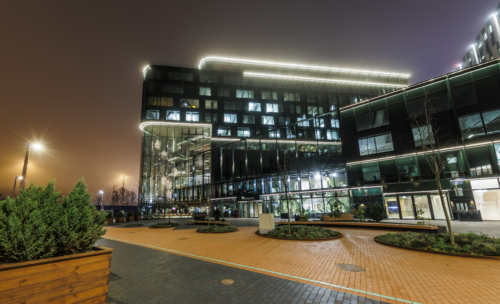For the second time this year, Ülemiste City connected students and companies, to find solutions to the challenges of the latter
Last week, defying the sunny summer weather, students and lecturers from Finland, Estonia, Norway, Denmark, Latvia and Lithuania gathered between the walls of the Estonian Entrepreneurship University of Applied Sciences, to pitch four companies of Ülemiste City their solutions for problems that had troubled the companies so far. The innovators gather within the business and education network of Nordic and Baltic countries, established by Ülemiste City and the Estonian Entrepreneurship University of Applied Sciences.
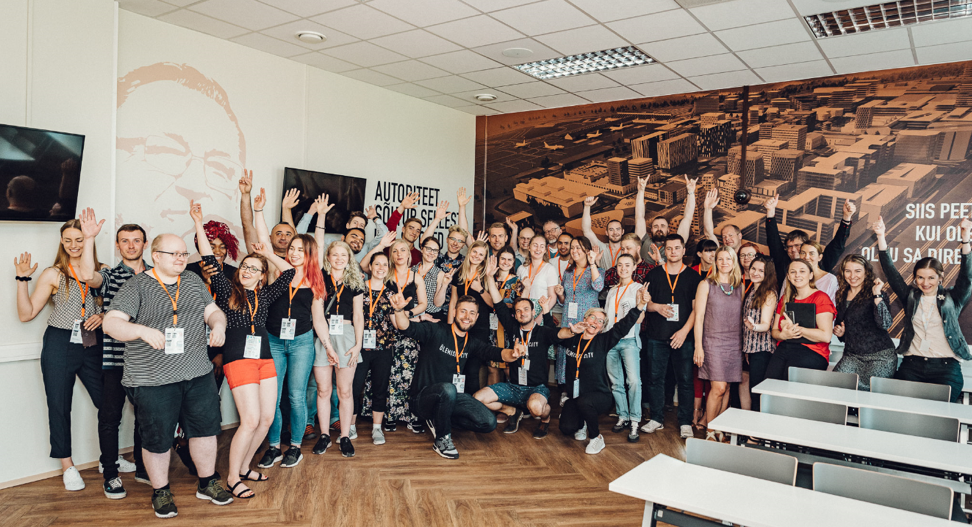
In the mini-hackathon that commenced on the fourth of July, student teams were given one day to develop their ideas and solutions, and to prepare a presentation for the next day. Throughout the hackathon, students had the opportunity to communicate closely with companies and gather information, in order to understand companies better through this, and to facilitate cooperation for further projects.
How to make Estonians use better passwords?
From the four companies of the Ülemiste campus, the first challenge to be tackled was with regard to Estonians using too poor passwords. Not only is it worrying that many people use very easy to guess and hackable passwords in the style of ‘password123’, but the fact that a strong password does not necessarily have to consist of a combination eight upper- and lowercase letters and numbers, is also of concern.
Rather, a password should be long and memorable, but somewhat different in every environment: for example, four- to six-word phrases. But how to communicate this to the end user? Two student teams offered real and practical solutions to Zone, on how to make people put more emphasis on their passwords. ‘In fact, until yesterday, I also used one and the same password almost everywhere, since I did not understand how easy it was to break it,’ said one of the foreign students when introducing the idea of their team.
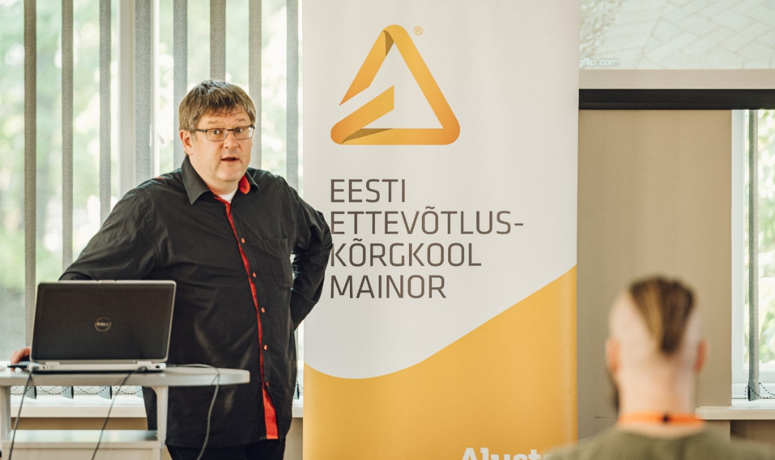
A password generator built into the website would make finding a secure password easy and clear for the user, declared the teams. For example, one specific solution that was offered, was a story-based password generator that provides the user with a strong password and does not save user data. The idea of it is that the user inputs a simple story in the tool – ‘I live in a five-storey green house’ – and, based on this, the password generator offers numerous sufficiently long, yet memorable passwords. According to Zone’s cybersecurity evangelist Peeter Marvet, cooperation and communication with the students will continue, since the offered solutions were not just fascinating, but truly practical and implementable.
Working at Nordea is great, but no-one knows this
The challenge of Nordea Bank ABK’s Estonian branch was also related to communication. Namely, the company needs to hire a large number of people in Estonia and other countries that speak Norwegian, Swedish, Finnish and Danish, but despite the fact that this is the largest company that provides financial services in the Nordic countries, Nordea’s service centre in Estonia is not well known.
Therefore, students had to come up with and present Nordea a plan on how to make the company more known in Estonia and to attract more people who speak Scandinavian languages. Both student teams dealing with Nordea’s problem offered several solutions; the need for a proper marketing campaign and the importance of a job offer package rang out.
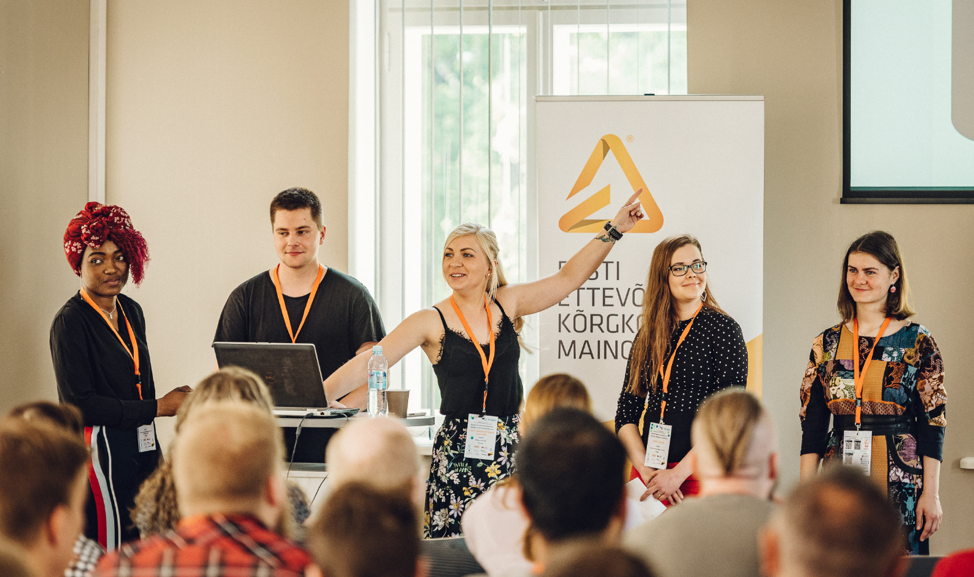
In truth, finding skilled persons is not the issue – employees are trained on the job; the issue is about attracting people who speak the languages to Nordea, and according to the teams, offering employees language training within the company would contribute to this.
The quality of the offered solutions is also confirmed by the fact that cooperation between Nordea and the students that participated at the hackathon will continue, and the Estonian Entrepreneurship University of Applied Sciences now directs talented students to Nordea. The Estonian branch of Nordea Bank ABP got positive confirmation that cooperation with university students is valuable, and the Estonian Entrepreneurship University of Applied Sciences and Nordea intend to create a joint scholarship programme for students of the field of finance.
How to find the right spot at Ülemiste? Or introduce different medical services to patients?
One of the four challengers was also Ülemiste City that searched for advice on how to guide people to better navigate on the campus. Over 400 companies and over 12,000 workers operate on the 36 hectares but currently, finding different buildings and companies is complicated since there is no unified system.
Students highlighted the current shortcomings and came up with a web platform which could be used to navigate, even without internet access, by means of screens placed around the campus, and thereby not only find the correct car park and building, but also the specific office where one needs to go.
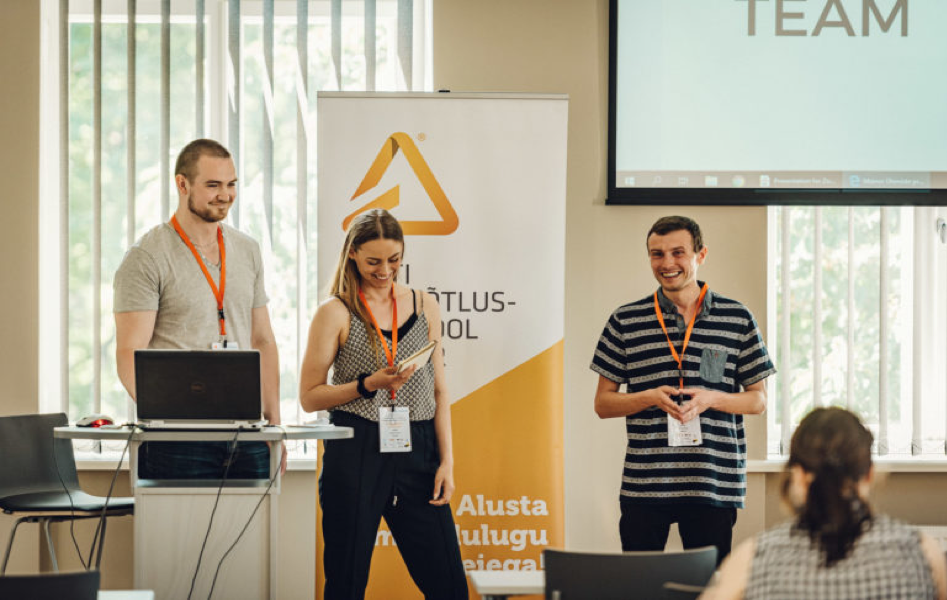
The fourth company was Qvalitas Medical Centre – one of Estonia’s largest companies in the field of occupational health, whose main customers are the employees of different companies. Employees come to Qvalitas for a health check – at the cost of their employer – but not many people know what other important services and procedures are required to promote their health – such as an eye check or physiotherapy. Many employees attend the health check, get advice from the doctor and start looking for the necessary specialists elsewhere, even though it would be possible to obtain everything on-site.
In this task as well, students had to adopt the role of a marketer, and to walk in the shoes of the health promoter and the patient, simultaneously, to find the most suitable solution for both parties. Teams handling the case of Qvalitas came up with not one, but even two or three solutions for raising awareness among potential patients about different services. Therefore, it was possible to hear very fascinating and applicable ideas, starting with advertising on Google, to bonus systems for patients and methods of increasing trust among people.
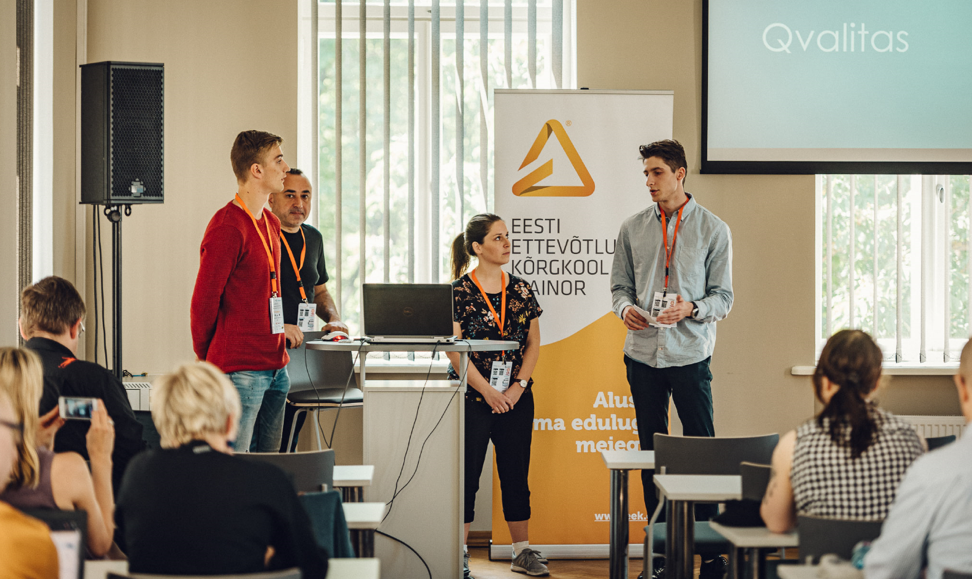
Cooperation between students and entrepreneurs
Since the aim of the event was to bring together international talents and companies, and to create new cooperative relationships, no single winning work was chosen at the hackathon. However, all students who participated at the event received a certificate and a higher education credit point from the Estonian Entrepreneurship University of Applied Sciences, as well as valuable connections and experiences.
